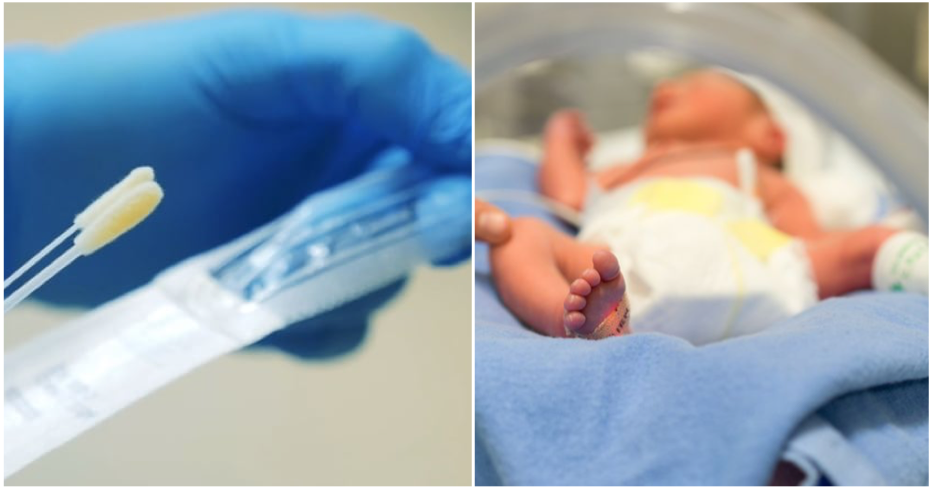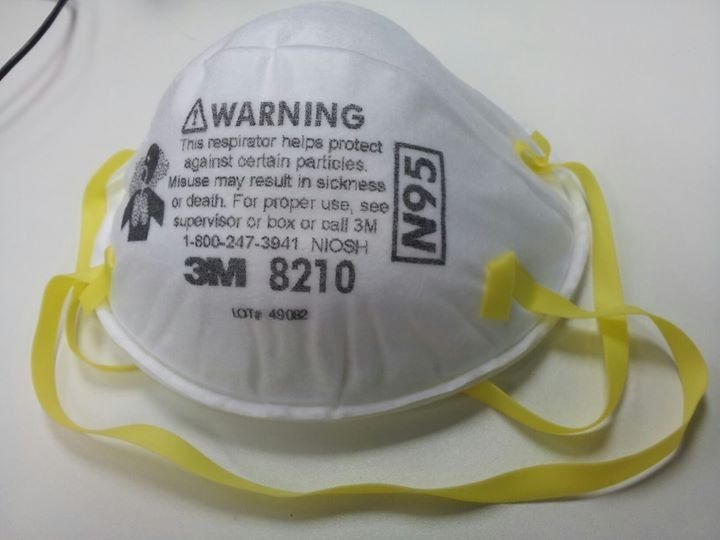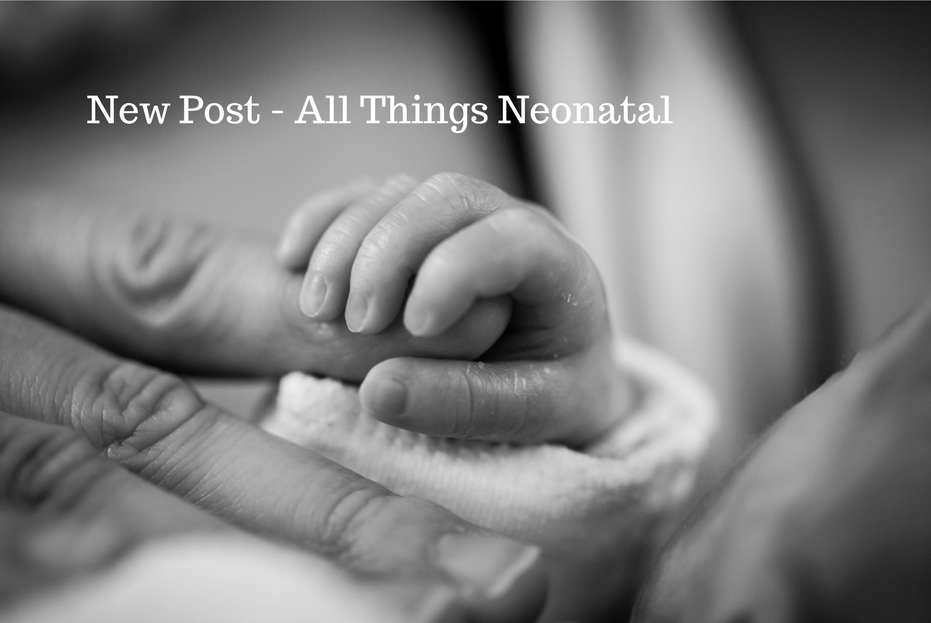
Is it safe to use my breast milk if I have COVID-19?
This is another hot topic out there as centers around the world struggle to determine how best to manage the mother who has contracted COVID-19 in pregnancy. There are resources out there already such as the CDC which states the following.
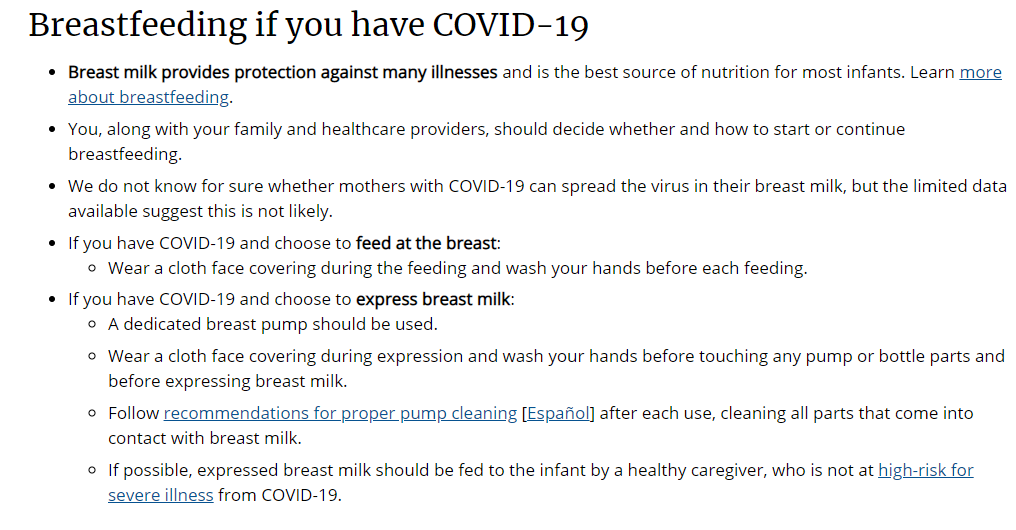
The World Health Organization on the other hand has this to say as of yesterday.
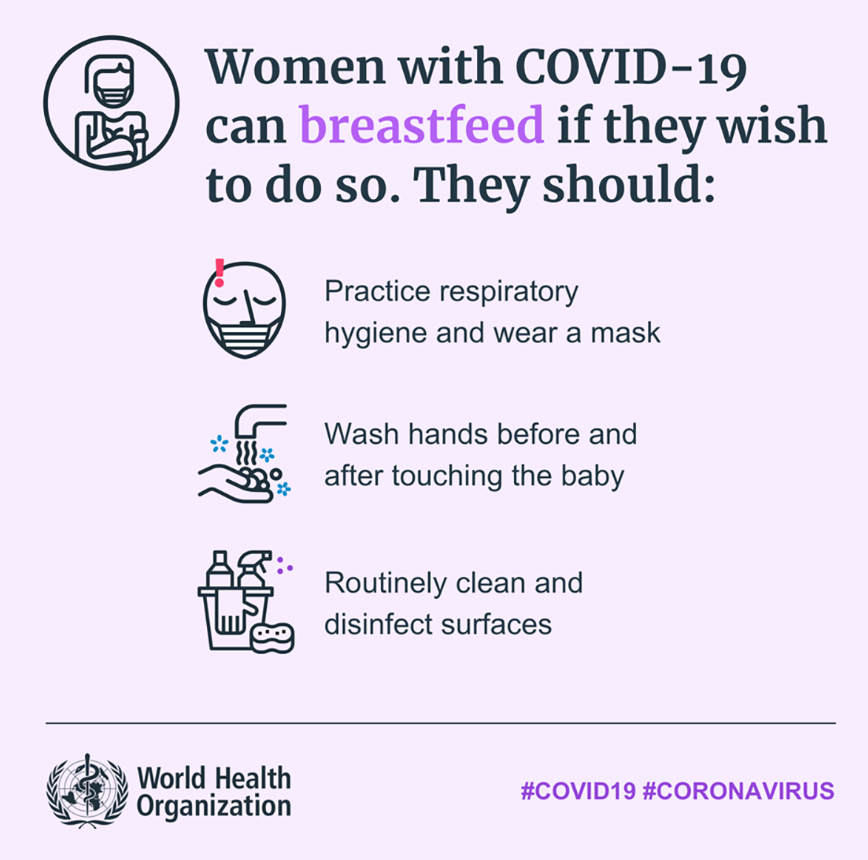
The question though is where do these recommendations come from? How strong is the evidence and what do you do when two very large trusted organizations don’t seem to be on the same page?
Let’s begin with another Coronavirus
Do you remember SARS? This was another coronavirus.
Wong SF et al published Pregnancy and perinatal outcomes of women with severe acute respiratory syndrome in 2004 in which they described the outcomes of 12 women infected with the coronavirus causing SARS. In this study they sampled Evidence of perinatal transmission of virus was assessed by SARS-associated coronavirus reverse-transcriptase polymerase chain reaction (SARS-CoV RT-PCR) and viral culture on cord blood, placenta tissue, and amniotic fluid at or after delivery. None of the tested infants were found to have infection nor were any of the tissues or fluids positive. They did not test breast milk specifically but as none of the infants developed SARS one could infer that if the other samples were negative so were the breastmilk samples. The conclusion after the SARS epidemic is that vertical transmission does not occur.
Moving on to COVID-19
It may surprise you but there is very little out there on breastmilk and COVID-19. Having said that, there is very little data on pregnancy and COVID-19 so the question then is how strong is the evidence for lack of transmission in breastmilk?
There is really one study by Chen H et al Clinical characteristics and intrauterine vertical transmission potential of COVID-19 infection in nine pregnant women: a retrospective review of medical records. The authors looked at 9 women presenting in the third trimester and examined outcomes from pregnancy. All of the infants were delivered via c-section and in 6 of the 9 samples of breastmilk were obtained and sampled for COVID-19. The good news was that none of the samples tested positive for the virus.
I suppose the result shouldn’t be that surprising as the virus causing SARS is similar and also has not been demonstrated to lead to neonatal infection. The question then is whether one should freely breastfeed their newborn if they are known to be positive for COVID-19.
Getting back to the earlier recommendation from the WHO, it reads as pretty firm. Looking at the sum total of evidence I think it is safe to say we don’t have a lot of data to go by. What we have though in this situation is to look at risk/benefit. To the best of our knowledge, COVID-19 is not transmitted into the fetus and after birth does not get into breastmilk. Both of these things appear to be quite good but as the virus spreads and more pregnant women contract the virus we may see as we get a larger sample that it is possible but I suspect this is a virus that simply doesn’t transmit to breastmilk. What if we banned breastfeeding in suspect or confirmed patients? The potential loss of immunoglobulins against COVID-19 is a real risk for the infant as they continue to live in the same home as the mother. How do we know that such antibodies exist? As for as I know for COVID-19 this hasn’t been proven yet but in the SARS epidemic a case report demonstrated that antibodies against this virus were indeed in breastmilk; SARS and pregnancy: a case report. Given that the viruses are part of the same class I would imagine the same would hold true with the new coronavirus. They may not be born with the virus but if they are receiving passive immunity from the mother that needs to be considered given that we have nothing effective (at the moment) to treat anyone. An alternative is to use donor breast milk but if we go down that road, our supplies will be exhausted before long. Weighing everything and using the best data we have at the moment my bias would be continue breastfeeding albeit with the recommendations for droplet precautions and hand hygiene as the WHO suggests. In that way, the recommendations from the CDC seem more measured. Having said all of that everything these days is subject to change.
Stay safe out there everyone.

